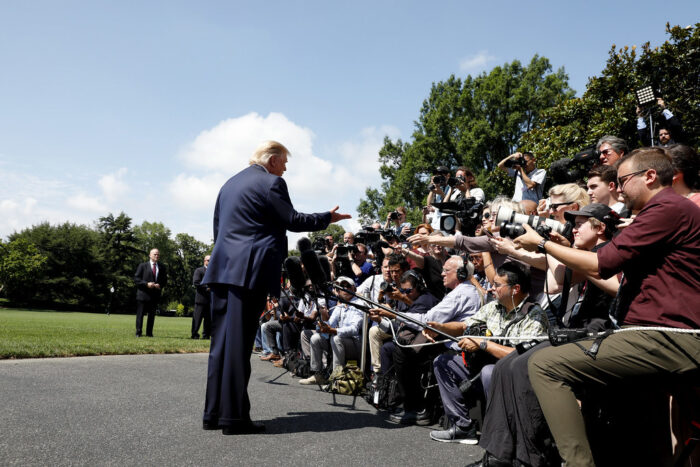A federal judge declined on Monday to temporarily restore the Associated Press’ access to certain President Donald Trump events, the Oval Office, and Air Force One. U.S. District Judge Trevor McFadden rejected the AP’s request to lift the ban Trump imposed earlier this month, a move intended to punish the news organization for continuing to use the term “Gulf of Mexico” after Trump renamed it “Gulf of America.”
While denying a temporary restraining order during Monday’s hearing, McFadden scheduled another hearing for March 20 to consider the AP’s request for a preliminary injunction. McFadden, appointed by Trump in 2017 and serving in Washington, D.C., cited several reasons for his decision, notably that he was not convinced the AP was suffering “irreparable harm” from the ban at this stage of the litigation, CNN reported.
And he noted that the organization’s delay in filing its lawsuit indicated it wasn’t suffering harm that would justify immediate action on his part. for a second
He noted that the organization’s delay in filing its lawsuit demonstrated that it wasn’t suffering any immediate injury that required intervention more than a week after the White House instituted the ban.
During the hearing, however, the judge expressed skepticism about the ban’s legality, at one point describing it as “discriminatory” and “problematic.” And while he seemed confused at times by how the pool is set up, CNN said, at one point he said that the White House “has accepted the White House Correspondent Association’s ability to be the referee here.”
President Donald Trump made the personal decision to bar The Associated Press from certain White House events and areas, according to court documents released by the White House on Monday, Politico reported. In a 23-page brief submitted ahead of an emergency court hearing Monday afternoon, government lawyers stated that granting journalists “special access” is a matter of “discretionary presidential choice.” The administration’s filing added: “As the Associated Press itself reported, the President himself made the decision to terminate its access.”
In its brief, the government stated that the AP can still cover the Trump White House and that revoking its “special access” does not violate the Constitution. “The President has absolute discretion to give interviews to whomever he pleases — the First Amendment does not compel him to give a personal audience to any particular journalist,” the attorneys wrote.
“That same discretion extends to whom he allows into the Oval Office (his personal workspace), Air Force One (his personal plane), and Mar-a-Lago (his private residence). The President’s discretion over these small spaces simply does not implicate constitutional rights — for citizens, journalists, or news organizations alike,” the filing added.



